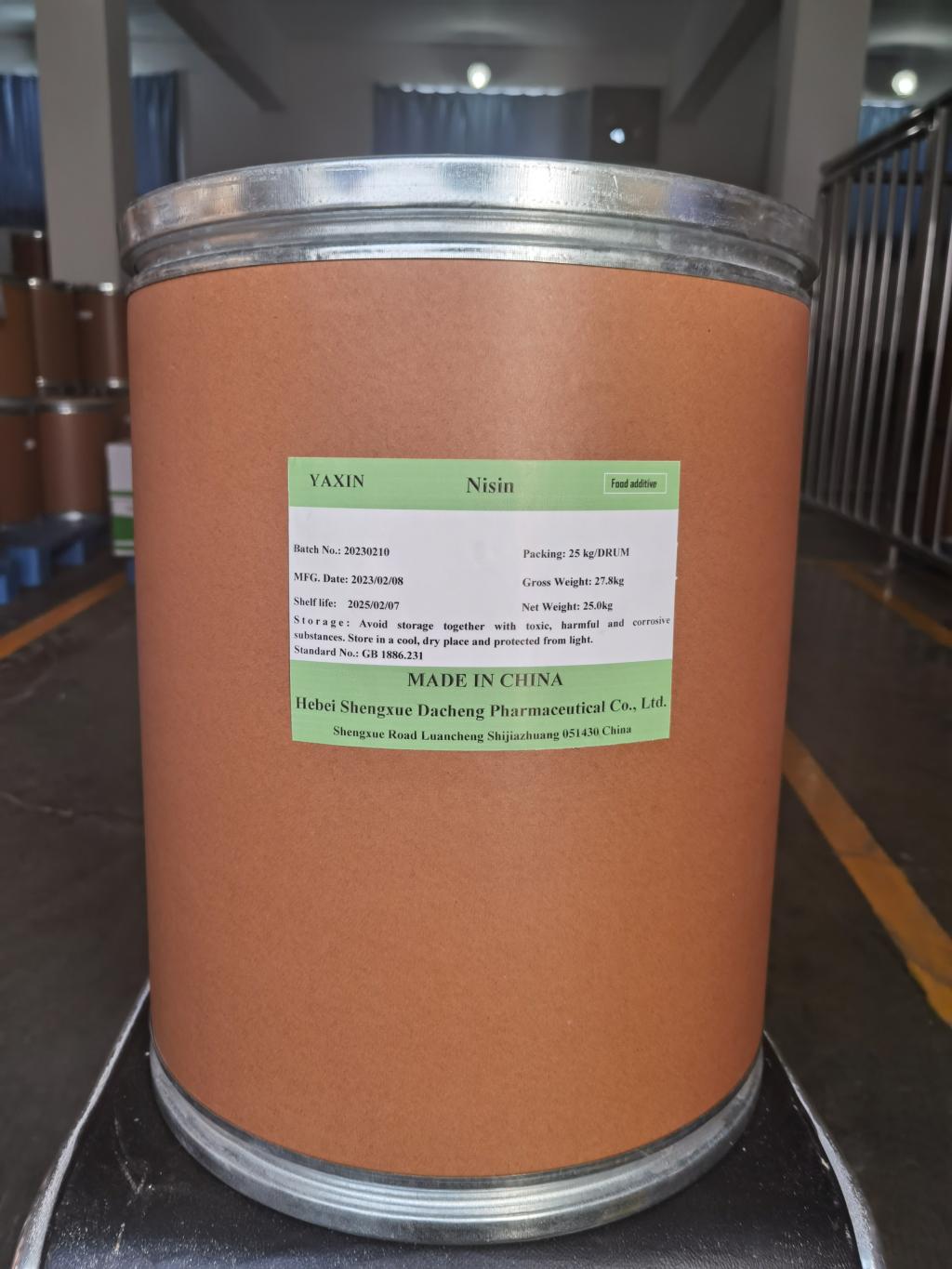Tel:+8618231198596

News
 CONTACT
CONTACT
 CONTACT
CONTACT
- Linkman:Linda Yao
- Tel: +8618231198596
- Email:linda.yao@dcpharma.cn
- Linkman:CHARLES.WANG
- Department:Overseas
- Tel: 0086 0311-85537378 0086 0311-85539701
News
How is Nisin used in the pharmaceutical industry?
TIME:2023-03-17
In this article, we will discuss the various applications of nisin in the pharmaceutical industry, including its use as a preservative, drug delivery agent, and as a potential therapeutic agent.
Nisin as a Preservative
One of the main challenges faced by the pharmaceutical industry is the prevention of microbial contamination during the production and storage of drugs. The presence of microbial contaminants can compromise the efficacy of drugs and pose a risk to patient safety. To address this issue, various preservatives are added to drugs to inhibit the growth of microorganisms. However, the use of synthetic preservatives has been associated with adverse effects such as allergic reactions, toxicity, and environmental pollution.
Nisin offers a natural alternative to synthetic preservatives as it has been shown to possess potent antimicrobial activity against a wide range of microorganisms. Nisin can be added to drugs in small concentrations to inhibit the growth of microorganisms and extend the shelf life of drugs. Nisin has been successfully used as a preservative in various pharmaceutical formulations, including eye drops, nasal sprays, and injectable drugs.
Nisin as a Drug Delivery Agent
In addition to its antimicrobial activity, nisin has been shown to possess unique physicochemical properties that make it an ideal drug delivery agent. Nisin is a cationic peptide that can form complexes with negatively charged drugs and enhance their solubility and stability. Nisin can also bind to cell membranes and facilitate the uptake of drugs by cells.
The use of nisin as a drug delivery agent has been explored in various studies. For example, nisin has been used to deliver anticancer drugs to cancer cells, resulting in improved drug efficacy and reduced toxicity. Nisin has also been used to deliver antibiotics to bacterial cells, resulting in enhanced antibiotic activity against resistant bacteria. The use of nisin as a drug delivery agent offers a promising approach to enhance the efficacy of drugs and overcome issues such as poor solubility and bioavailability.
Nisin as a Therapeutic Agent
In addition to its use as a preservative and drug delivery agent, nisin has been explored as a potential therapeutic agent. Nisin has been shown to possess various biological activities, including anti-inflammatory, immunomodulatory, and anticancer activities.
Nisin has been shown to exhibit anti-inflammatory activity by inhibiting the production of pro-inflammatory cytokines and chemokines. This activity has been demonstrated in various in vitro and in vivo studies, suggesting that nisin may have potential applications in the treatment of inflammatory diseases such as arthritis, colitis, and asthma.
Nisin has also been shown to possess immunomodulatory activity by enhancing the activity of immune cells such as macrophages and natural killer cells. This activity has been demonstrated in various in vitro and in vivo studies, suggesting that nisin may have potential applications in the treatment of immune-related disorders such as autoimmune diseases and cancer.
Finally, nisin has been shown to possess anticancer activity by inducing apoptosis and inhibiting the proliferation of cancer cells. This activity has been demonstrated in various in vitro and in vivo studies, suggesting that nisin may have potential applications in the treatment of various types of cancer.
Conclusion
Furthermore, nisin has been shown to possess various biological activities, including anti-inflammatory, immunomodulatory, and anticancer activities. These activities suggest that nisin may have potential applications in the treatment of various diseases, including inflammatory diseases, immune-related disorders, and cancer.
Despite its potential, the use of nisin in the pharmaceutical industry is still in its early stages. Further research is needed to explore the full potential of nisin as a preservative, drug delivery agent, and therapeutic agent. Future studies should focus on optimizing the use of nisin in various pharmaceutical formulations and on elucidating the mechanisms underlying its biological activities.
In summary, the use of nisin in the pharmaceutical industry offers a promising approach to improve the efficacy and safety of drugs while reducing the environmental impact of synthetic preservatives. With further research and development, nisin may become an important tool in the fight against various diseases.
- Tel:+8618231198596
- Whatsapp:18231198596
- Chat With Skype







